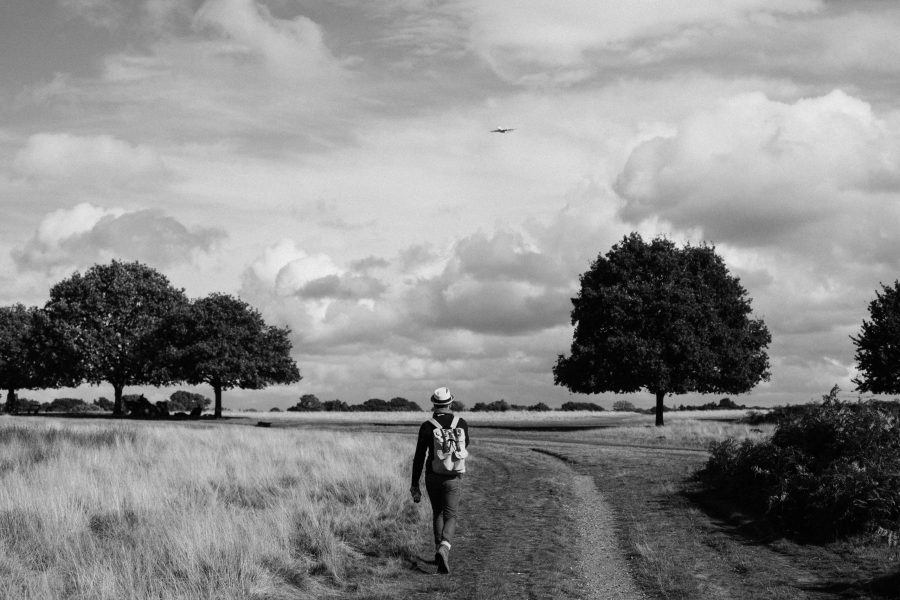My World: June 2021…
This is part of a series of articles where our contributors describe how they think things will look a year from now.
The crisis brought about by the coronavirus utterly paralyzed the normal functioning of society on a global scale. Some countries have fared better than others, regardless of their political systems. Effectively fighting the virus at the national level requires a collective response that is both swift and rational, a leadership that believes in science and professional expertise and is trusted by its constituents, and a public that can identify a shared vision of future.
The current pandemic intensifies underlying social, economic, and political tensions and accelerates preexisting trends. The fragility of the public health infrastructure in many countries around the world has become evident, as has their depletion of state and institutional capacities in coping with public health crises.
Going forward, whether the coronavirus will be successfully restrained by a new vaccine in 2021 remains unknown. The US’s performance in the pandemic tarnished its leadership position and credibility worldwide—more so in people’s perceptions. In 2021, the world will watch whether the US declines further as a global leader in crisis management and economic recovery or instead presents to the world its prowess in post-crisis ascendancy and savvy in strategic cooperation with its allies and China. The November 2020 elections may provide an important hint. A divided public beyond the political realm makes important tasks harder to achieve. That being said, the Federal Reserve occupies a unique position in providing liquidity domestically and beyond its borders, thereby playing a crucial role in managing the economic distress resulting from the coronavirus crisis. Successful action in this regard, together with the fact that US treasuries are still considered a safe harbor for risk-averse investors, will likely safeguard the US economy.
China has demonstrated its success in effectively combatting the coronavirus through collective efforts under the government’s leadership, but its lack of clarity in the initial stages of the government’s reaction to the outbreak may nonetheless harm its image. Objectively speaking, any government would need time to confront the deep uncertainty surrounding the transmissibility and lethality of the virus during its initial discovery stage and navigate between the risks of overreacting and causing unnecessary fear and panic in the public or, alternatively, not being responsive enough to a major crisis. Nevertheless, China’s decision to prioritize life over immediate economic performance was largely applauded by its own citizens. As life gradually returns to normal in many cities in China, by summer 2021, the critical test for China will be its trajectory of economic recovery. Local governments’ and state-owned enterprises’ mounting debt is likely the most onerous burden for its economic stability. However, at the same time, its focus on the expansion of its public health infrastructure, domestic consumption, and the acceleration of development in less developed areas of the country might help stimulate the economy.
Implications for global real estate
Within these macro environments, there are profound implications for the real estate sector. The most evident effect is the abrupt halt of real estate transactions as investors move into a wait-and-see mode, with delayed investment decisions and pending financing possibilities.
In the longer term, as the pandemic forces us to recognize that our physical built environment is ill-prepared for emergencies, certain building typologies will undergo unprecedented scrutiny and adjustments in design, construction, and operation. Relatively speaking, multifamily residential and logistical assets have been exposed to lower operational and financial risks during the pandemic and have performed better in the capital markets; thus, they will continue to be the preferred asset classes. Hospitality and retail real estate, where services drive growth, have faced unprecedented challenges, with many smaller retailers and hotels confronting basic challenges to survival. Similarly, for the office asset class, we expect transitory downward pressure in the near term. Investors and users will scrutinize the pre-crisis emphasis on densified communal environments that the co-working office typology embraces that emerged from the last recession of 2007-2008.
In addition, the physical flexibility and adaptability of buildings and spaces in the long run will be highlighted as a necessity for investors and owners to demand premiums in terms of resilience at times of crises and as an insurance against operational risks. Digitalization, which refers to digital connectivity provided by broadband Internet and data analytics associated with artificial intelligence provided by digital infrastructure, needs to be considered at various physical scales. At the building scale, digitalization is to connect individual households and render working from home and long-distance collaboration a possibility; at the urban scale, digitalization is vital so that government efforts can rely on the data to assess and forecast the coronavirus’s current spread and aspects of other emergencies in the future, while also mitigating the associated impacts under appropriate management protocol.
The public health infrastructure will become a critical component of master urban planning and provide flexibility in the configuration, design, and function planning of public open spaces in cities. In that sense, public health-related services might enter the ever-growing importance of the ESG investing in real estate, where environment (E), social responsibility (S), and governance (G) form critical components of the investors’ agenda. As the crisis has laid bare the inequities and injustices that threaten people’s well-being, safety, and lives, especially in the US, this momentum that began to emerge before the pandemic is expected to continue.
Thus, it is critical to leverage this crisis as an opportunity to pursue a development and investment model that is more equitable and just. Questions that need to be considered by both private and public sectors include, but are not limited to, how to encourage investments that focus on the affordability of real estate and shared public benefits, how to establish policies and programs that bolster housing infrastructure and capacity to effectively deliver assistance to vulnerable renters, and how to incentivize funding to improve the provision of public health and well-being. In the wake of this disaster, these are just a few critical questions we must consider and seek solutions for without relying solely on the genius of modern techniques of finance in the name of the “efficiency” of the market.
Historical pandemics have structurally reshaped how we as a society conceived of and conceptualized cities, urban developments, and collective well-being. There is no reason to think that this pandemic will not do the same.
My predictions for June 2021:
UK in recession: Yes
Sterling vs US$: Higher
Sterling vs Euro: Higher
UK base rate: Lower
UK RPI: Higher
Halifax UK house price Index: Lower
US President: Biden
UK/EU Trade Deal: Yes
UK/ USA Trade Deal: Yes
When this is all over I will visit each different restaurant every day for dinner and enjoy a variety of cuisines for 30 consecutive days.
A shortened version of this article was published on the Harvard GSD website on May 19, 2020.
Bing Wang is Associate Professor at Harvard University Graduate School of Design (GSD) and faculty area head for Real Estate and the Built Environment of Master in Design Studies. She is the Faculty Co-Chair for Real Estate Management program, a joint executive program between the GSD and Harvard Business School, and Co-Chair of the Advanced Real Estate Development program at Harvard.
Tobias Just is Professor for Real Estate at the University of Regensburg and Academic Director of the IREBS Real Estate Academy. He is President of the German Society of Property Researchers (gif), editor of the ZIÖ – the German Journal of Real Estate Research and was serving on the Management Board of ULI Germany between 2012 and 2018. In 2017 Tobias became Fellow of the RICS by nomination.








